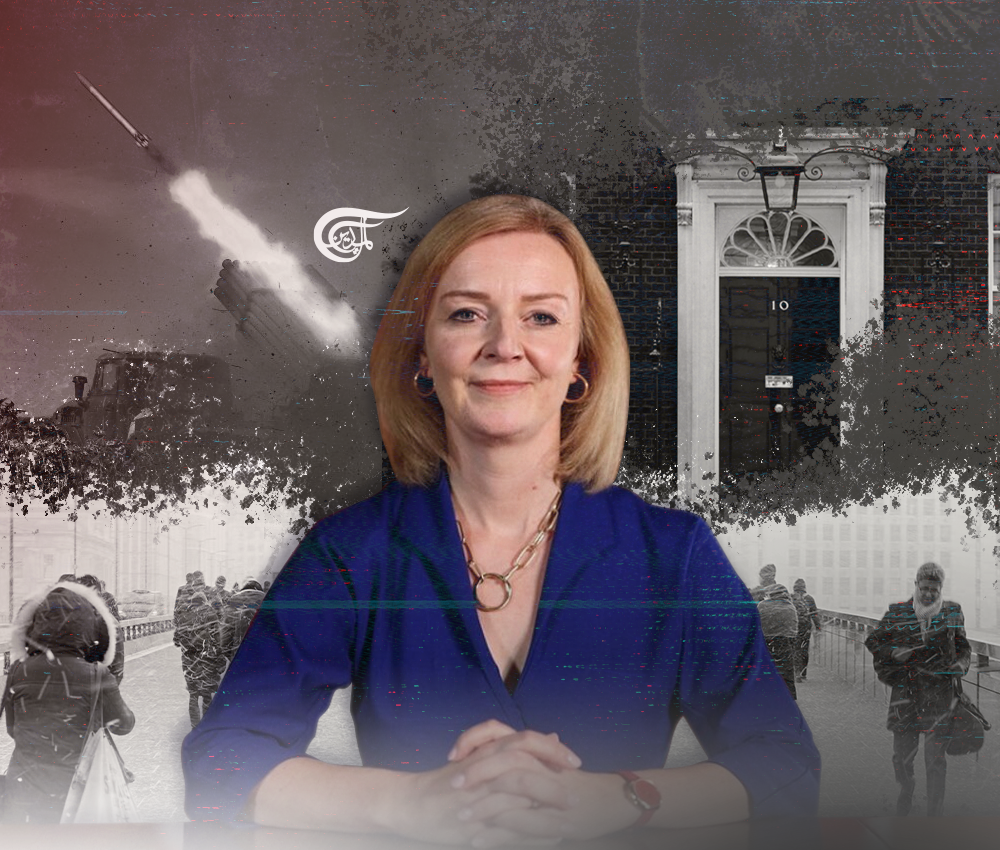News from Nowhere: Hail to the Chief
Even before it had begun, the era of Liz Truss’s premiership appeared tainted by the blundering idiocy, the moral complacency and the entrenched dishonesty and cynicism which had blighted Boris Johnson’s time in office.
-

News from Nowhere: Hail to the Chief
Last month, a recording emerged in which it appeared that Tory leadership contender Liz Truss had branded British workers lazy. While this was hardly a great revelation or a state secret, there is an unspoken rule in UK politics that this point ought to be glossed by talk of low productivity in the national economy (which is in part the result of relatively low levels of corporate investment in production processes) rather than being blamed upon the aptitudes and attitudes of the great British worker.
Truss’s comments, taped at least three years ago, referred to a lack of ‘skill and application’ in the UK labor force, which she compared unfavorably with the Chinese. ‘It's partly a mindset and attitude thing,’ she had said. ‘It’s working culture basically. If you go to China, it's quite different, I can assure you.’
Prior to her recent elevation, Ms. Truss’s most cited political statement had involved the condemnation of Britain’s reliance on imports of foreign cheese and her praise for the establishment of new British pork export markets in Beijing. There will be those in the trade union movement who will be anxious that her enthusiasm for enhanced trading relations with China appears to extend to explicit ambitions for the adoption of some that economic superpower’s stricter industrial practices.
She went on, in that leaked recording, to observe that productivity in London was very different from that across the rest of the country. This might go some way to explaining her extraordinary willingness to support her campaign team’s plan to reduce public sector incomes in the poorer areas of the UK – specifically outside the capital and the prosperous south-east of England. That absurd proposal had of course been ditched within hours of its announcement following an immediate backlash both from Her Majesty’s Opposition and from parliamentarians within her own party. Yet, demonstrating an extraordinary lack of judgment, the politician who had already then seemed clearly destined (barring accidents or miracles) to be the UK’s new Prime Minister had zealously – albeit briefly – endorsed it.
Her recent track record is hardly otherwise unblemished. She has vociferously resisted proposals to introduce targeted support for those most in need at a time of high inflation and unprecedented energy price hikes. She has dismissed such plans as being little more than socialist ‘handouts’ and has instead argued in favor of tax cuts which would most benefit the wealthiest individuals and corporations and which have been described by members of her own party as ‘incredibly regressive’.
Indeed: progressive she is not. As Foreign Secretary, Liz Truss had wholeheartedly backed Boris Johnson’s scheme to deport asylum-seekers to the central African nation of Rwanda, a plan whose implementation she has said she will continue as Prime Minister. A few weeks ago, it was reported that the former administration had chosen to ignore, and then attempted to suppress, concerns raised by one of Ms. Truss’s own officials as to the Foreign Office’s formal assessment of Rwanda.
In April, that expert on African affairs had advised that the country to which the UK was preparing to send its refugees had a rather poor human rights record itself, not only in its failure to tolerate political opposition but specifically in its use of ‘arbitrary detention, torture and even killings’ as ‘accepted methods of enforcing control’. It appears that this highly controversial (but also potentially pertinent) piece of advice had been rejected out of hand, and that this had happened on Liz Truss’s watch. Perhaps more worryingly, the government in which Truss continued to serve as Foreign Secretary had, since then, sought to ensure that these documents were excluded from court proceedings in ongoing legal challenges to its deportation policy.
In many ways, she seems as consistent and clear as Boris Johnson in her inconsistencies and obfuscations. A fortnight ago, it was reported that Truss had abandoned her plan for a full emergency budget upon her accession to Downing Street. This would have necessarily been accompanied by official economic forecasts. With analysts at one investment bank predicting that the rate of inflation could exceed eighteen percent by January, it appears that the last thing that Team Truss wants would be expert opinion announcing the economic damage that is likely to be inflicted by her politically opportunistic tax policies. Like her predecessor in Downing Street, it seems that the country’s new Prime Minister favors the unthinking bombast of heady optimism over a nagging insistence upon solid facts.
On the same day, it was revealed – amidst mounting public outrage at daily news reports of raw sewage being dumped into rivers and the sea – that, when she had served as Environment Secretary, Ms. Truss had made significant cuts to funding earmarked to tackle the problems of water pollution.
That week, it was also reported that Truss had used her government premises to conduct campaign meetings. This is not permitted by ministerial rules. Then, when asked whether she would appoint an ethics advisor to replace those who quit over the last few years, she ducked the question and responded only that she always acted with integrity.
Ten days ago, Ms. Truss provoked further disquiet within her own party when she commented that the jury was ‘still out’ as to whether the current president of France was a ‘friend or foe’ of the UK. She appeared to have forgotten that France remains one of Britain’s key international allies, and that she was still at the time, as Foreign Secretary, serving as her nation’s most senior diplomat. One former Tory minister observed that people might have expected that the Foreign Secretary would be aware that the country enjoyed an important military alliance with France. Another suggested that she hadn’t just been ‘playing to the gallery’ but had in effect let the ‘prejudices of the gallery’ go to her head.
Emmanuel Macron himself responded that if the two countries were incapable of saying whether they were friends or enemies then they were ‘going to have a problem’. It had hardly been the most glorious conclusion to Ms. Truss’s term as Foreign Secretary nor indeed the most auspicious prelude to her tenure in Downing Street.
Then, one week ago, Liz Truss cancelled a major interview scheduled with the UK’s national broadcaster. Her rival had already undergone a similar in-depth interview, but, the day before it was due to be screened, Ms. Truss chose to renege on her previous commitment to take part. In doing so, she displayed a resistance to scrutiny that has lately become all too familiar at the top of British government.
So, even before it had begun, the era of Mary Elizabeth Truss’s premiership appeared tainted by the blundering idiocy, the moral complacency and the entrenched dishonesty and cynicism which had blighted Boris Johnson’s time in office.
We can only hope, for the sake of the future direction of the nation, that these ethical lapses and political failings are not irrevocable signs of things to come, nor symptoms of deeper flaws in the character of the nation’s new leader, and that we don’t find ourselves once again abandoning the possibilities of truth and trust in the UK’s government now that the country has at last become totally trussed.

 Alex Roberts
Alex Roberts
 7 Min Read
7 Min Read











